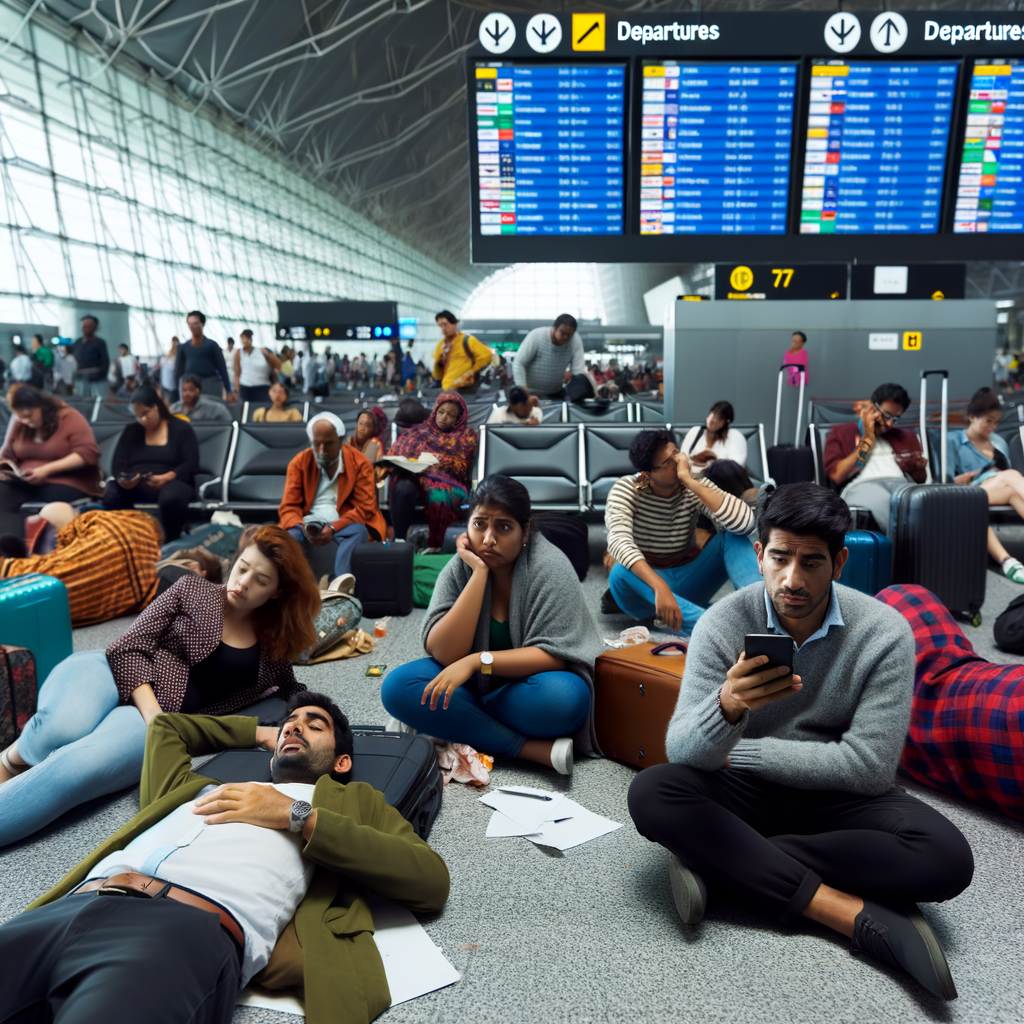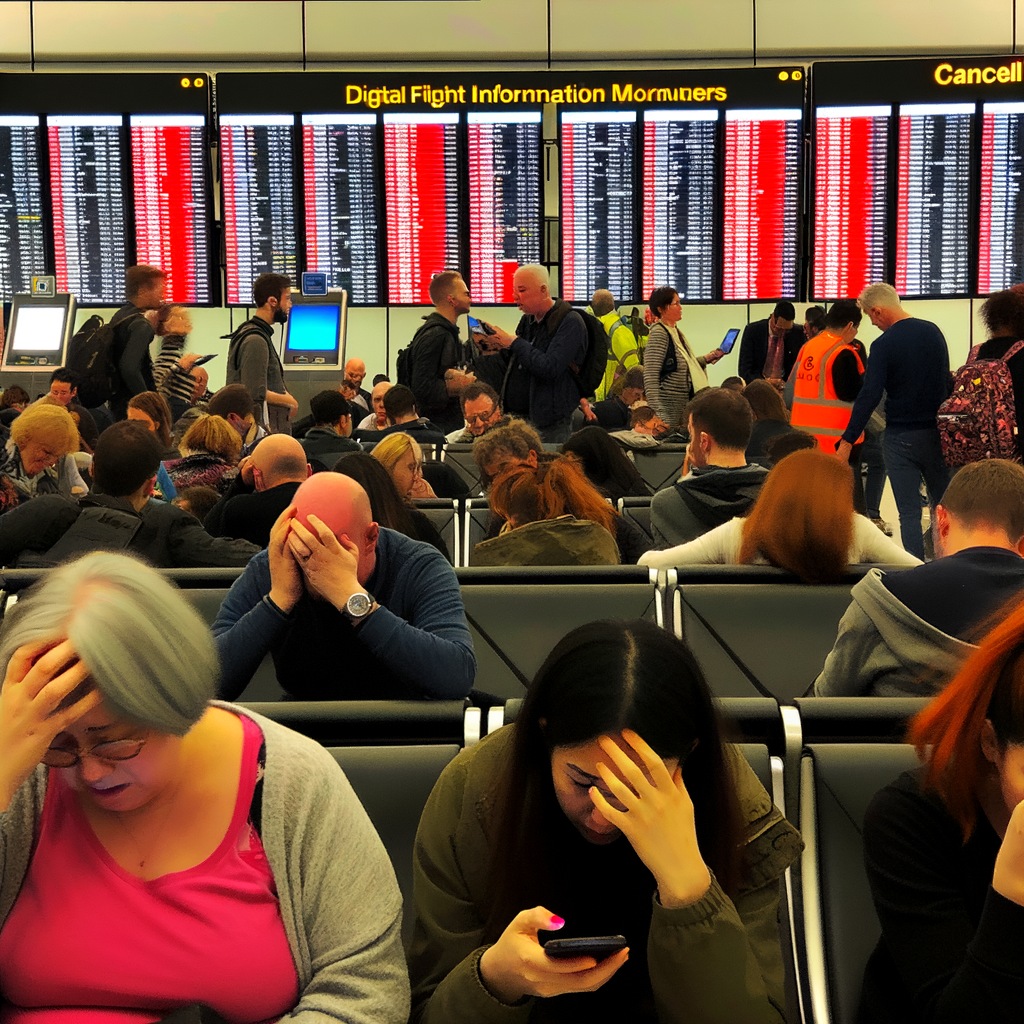TUI Passengers Face 50-Hour Delay Nightmare from IT Outage Chaos
In a recent travel turmoil, hundreds of TUI passengers were left stranded due to an **unforeseen IT outage** that led to an incredible 50-hour delay. This unexpected issue highlighted the fragility and the far-reaching impact of technical glitches within major travel companies. Here’s an in-depth look into the incident, its repercussions, and what it means for future travelers.
Cause of the Chaos
On the day the incident occurred, TUI’s **IT systems** faced an unexpected failure. Sources indicate that the **sudden outage** crippled the airline’s ability to manage flight logistics, check-ins, and boarding processes. Here are the primary factors contributing to the delay:
- System Failure: A major glitch in TUI’s IT infrastructure.
- Overwhelmed Support: Inability to manually handle the overflow.
- Communication Breakdown: Delayed and insufficient information provided to passengers.
Impact on Passengers
Stranded at the Airport
The immediate impact was felt by hundreds of passengers who found themselves stranded at the airport. **Flights were grounded**, and the uncertainty over new schedules left travelers frustrated and anxious. Passengers cited several issues:
- Lack of Information: Delays in communication from TUI staff.
- Inadequate Facilities: Insufficient accommodations for waiting passengers.
- Emotional Stress: Stress and anxiety over travel plans.
Financial Repercussions
Many passengers faced **financial losses** due to missed connections and the need to make alternative travel arrangements. The ongoing delay resulted in additional expenses for lodging, food, and transportation. For some, this led to significant disruptions in their personal and professional lives.
TUI’s Response
TUI has acknowledged the inconvenience caused and has issued a formal apology. In their statement, they have assured passengers of the following:
- Compensation: Financial compensation for the affected travelers.
- Assistance: Alternate travel arrangements and accommodations.
- Investigation: Thorough investigation to prevent future occurrences.
Despite these promises, the response and recovery process has come under scrutiny for its speed and effectiveness.
Lessons Learned and the Way Forward
Enhancing IT Infrastructure
This incident underscores the need for robust IT systems within airlines. Investing in **redundant systems**, **regular updates**, and **comprehensive testing** can prevent similar outages. Ensuring that support teams are well-equipped to handle emergencies is also crucial.
Improving Communication
Effective communication can significantly mitigate passenger frustration. Airlines must prioritize providing timely updates and accurate information during crises. Establishing **alternative communication channels** and **training staff** for such scenarios can help manage expectations and reduce anxiety.
Passenger Rights and Awareness
Passengers should be well-informed about their rights during flight delays and cancellations. Ensuring transparency around compensation policies and **educating travelers** on how to claim it can build trust and loyalty.
Regulatory Oversight
Regulatory bodies should examine the effectiveness of current **aviation laws** and guidelines concerning technical outages. Introducing stricter regulations may compel airlines to adopt better practices, ensuring passenger safety and satisfaction.
Conclusion
The 50-hour delay faced by TUI passengers is a stark reminder of the vulnerabilities within the travel industry. While technological advancements have brought many conveniences, they also present new challenges. Addressing these proactively is essential to maintain the smooth functioning of air travel and the confidence of passengers around the globe.
As TUI works towards resolving this issue and compensating those affected, other airlines must take note and bolster their own systems. By doing so, they can ensure that such disruptions are minimized and that the travel experience remains as seamless as possible, even in unexpected circumstances.
For the latest updates on the situation and tips on navigating travel disruptions, stay tuned to our blog. Safe travels!



